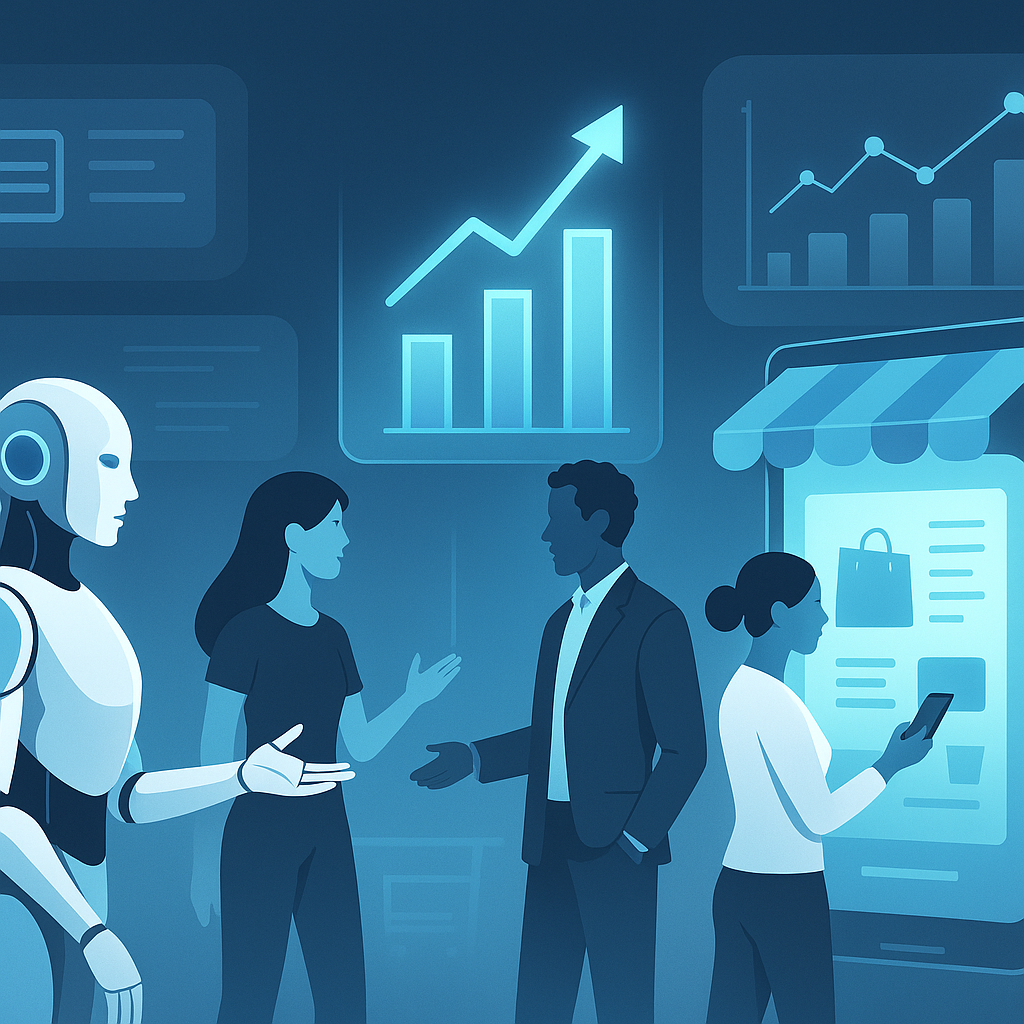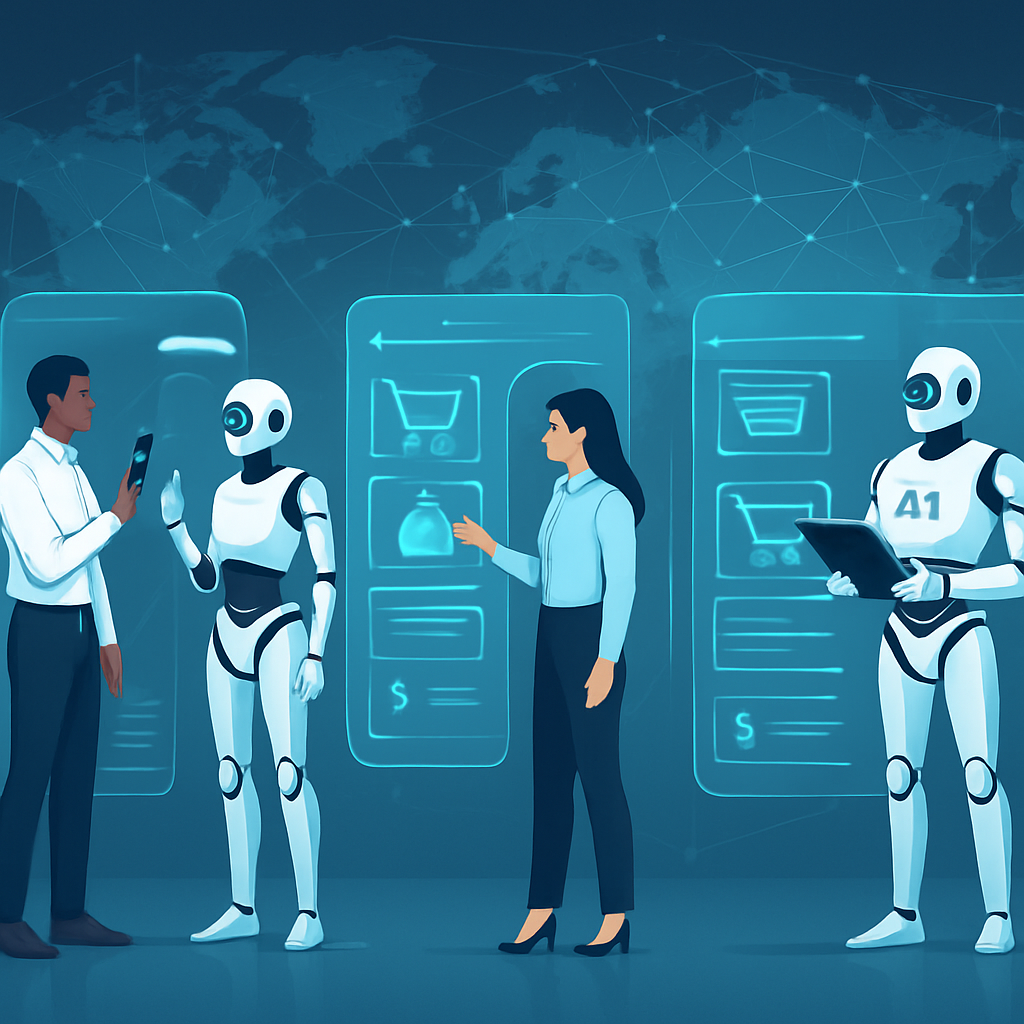
Harnessing AI Programs to Revolutionize E-Commerce and Boost Growth
The Transformative Power of Artificial Intelligence in E-Commerce
As we navigate through 2025, the integration of artificial intelligence programs within e-business and e-commerce realms is more pivotal than ever. These intelligent systems are rewriting the rules of online commerce, accelerating growth, enhancing customer experiences, and optimizing operational workflows with unprecedented precision.
Understanding Artificial Intelligence Programs in E-Business
Artificial intelligence programs refer to sophisticated software solutions that mimic human intelligence processes. These encompass machine learning algorithms, natural language processing engines, and intelligent agents that analyze data, automate decision-making, and personalize interactions in e-business environments.
In e-commerce settings, AI programs empower businesses to understand customer preferences, forecast trends, and streamline logistics, thereby fostering not just incremental improvements but fundamental transformations.
Key Features of Advanced AI Programs in 2025
- Real-Time Data Processing: AI programs now process vast data streams instantaneously, providing businesses with actionable insights to refine marketing and inventory strategies on-the-fly.
- Predictive Analytics: Enhanced predictive models anticipate customer behaviors and market shifts, enabling proactive planning and personalized promotions.
- Natural Language Understanding: Conversational AI interprets customer queries with nuanced comprehension, facilitating efficient customer support and engagement.
Revolutionizing Customer Experience through Personalization
One of the most profound impacts of artificial intelligence in e-commerce is its capacity to deliver hyper-personalized shopping experiences. AI programs analyze intricate behavioral patterns, purchase histories, and even contextual data to curate recommendations tailored to individual shoppers.
For example, leading e-business platforms utilize AI-driven recommendation engines that adapt dynamically as consumers browse, ensuring that product suggestions remain relevant and compelling. This personalized approach not only elevates customer satisfaction but significantly boosts conversion rates and repeat purchases.
Optimizing Operations and Supply Chain Management
Beyond the customer interface, AI programs are revolutionizing operational efficiencies. Intelligent automation streamlines inventory management by predicting demand fluctuations with high accuracy, minimizing overstocking or stockouts.
Logistics benefits from AI-powered route optimization and automated warehouse systems that reduce costs and improve delivery speed. Additionally, fraud detection mechanisms powered by anomaly detection algorithms protect e-businesses and customers alike, maintaining trust and security.
Case Study: AI-Driven Inventory Management
A global online retailer recently implemented an ai program capable of integrating sales data, market trends, and supplier metrics to forecast inventory needs. The system reduced stock holding costs by 25% while improving product availability, showcasing AI's tangible impact on supply chain resilience and profitability.
Innovative AI Programs Shaping E-Business Models
2025 has seen the rise of AI-powered conversational commerce, where virtual assistants guide shoppers seamlessly through purchase decisions using voice, text, or even augmented reality interfaces. These programs enhance engagement by providing personalized support instantaneously.
Moreover, AI-driven dynamic pricing engines adjust prices in real-time based on competitor actions, demand elasticity, and customer segments, ensuring competitiveness and maximized revenue streams.
Challenges and Considerations in AI Adoption
While the benefits are substantial, integrating AI programs into e-business requires careful attention to data privacy, ethical AI use, and system integration challenges. Business leaders must ensure transparency and compliance with global regulations to foster consumer trust.
Additionally, ongoing investments in AI training and maintenance are essential to sustain the effectiveness of these intelligent systems as market dynamics evolve.
Looking Ahead: The Future of AI-Driven E-Business Growth
The horizon for artificial intelligence in e-commerce points toward even more immersive and autonomous experiences. Emerging technologies like explainable AI will empower businesses with transparent decision-making insights, while AI-human collaboration models will blend creativity and machine precision for innovative solutions.
As AI programs become increasingly sophisticated, e-businesses that embrace and adapt these technologies will unlock unparalleled growth opportunities and reshape the digital marketplace landscape.
Conclusion
Artificial intelligence programs serve as catalysts that revolutionize e-commerce and bolster e-business growth. By delivering personalized customer experiences, streamlining operations, and enabling innovative business models, AI is transforming online commerce into a more agile, intelligent, and customer-centric domain in 2025. The ongoing evolution of AI promises to continuously redefine how businesses engage with customers and operate efficiently in an increasingly competitive digital world.






